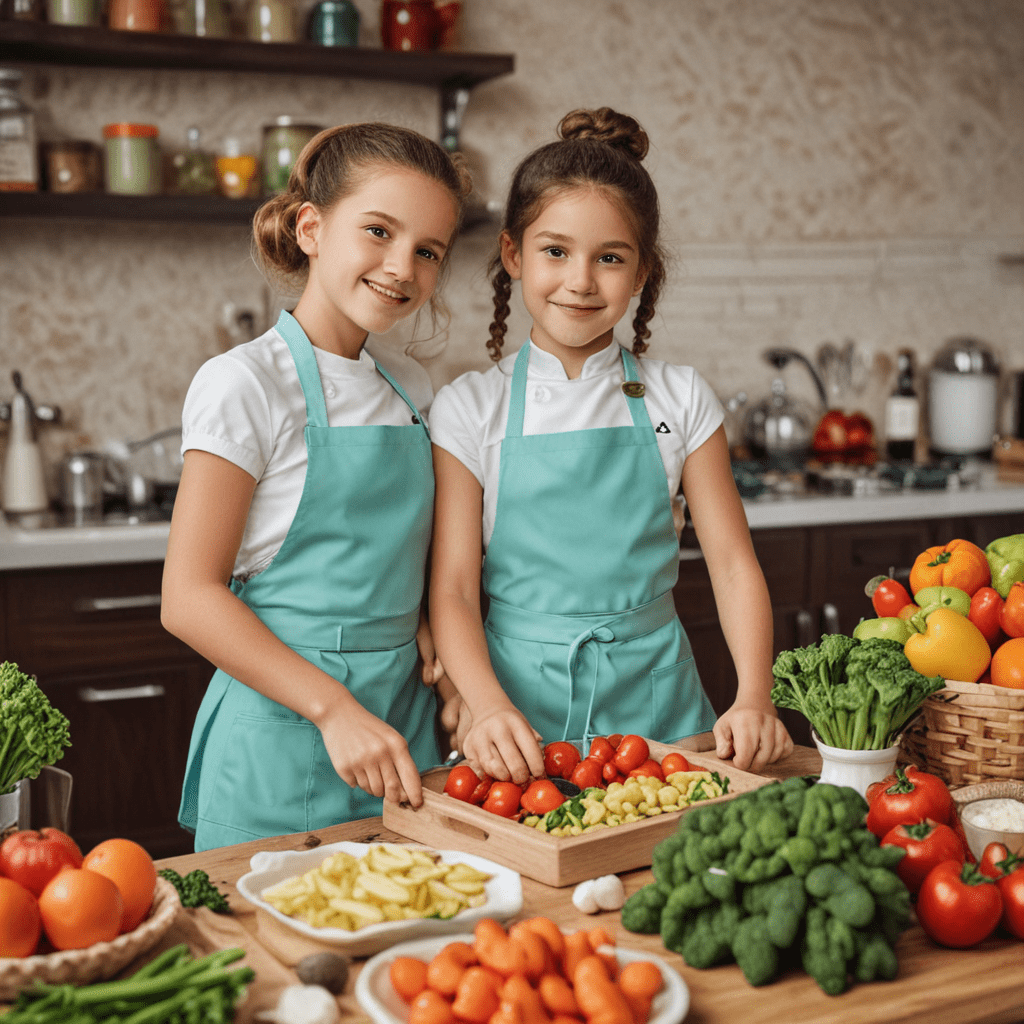
1. Introduction
Childhood obesity is a growing epidemic and a major public health concern. According to the Centers for Disease Control and Prevention (CDC), over 19% of children aged 2-19 years in the United States are obese. Obesity in children can lead to a range of health problems, including heart disease, stroke, type 2 diabetes, and cancer.
Nutrition education is an important part of the fight against childhood obesity. Cooking classes can be an effective way to teach children about nutrition and healthy eating habits. By learning how to cook, children can develop a lifelong love of healthy food and learn how to make nutritious meals for themselves and their families.
2. Benefits of Cooking Classes for Kids
There are many benefits to cooking classes for kids. These include:
2.1 Improved Nutrition Knowledge
Cooking classes can help children learn about the different food groups and the importance of eating a balanced diet. They can also learn about the health benefits of different foods and how to make healthy choices.
2.2 Enhanced Cooking Skills
Cooking classes can help children develop their cooking skills, which can last a lifetime. They can learn how to prepare simple meals, how to use kitchen equipment, and how to follow recipes.
2.3 Foster Healthy Eating Habits
Cooking classes can help children develop healthy eating habits that can stay with them for life. By learning how to cook their own food, children can learn how to make healthy choices and how to avoid unhealthy foods.
6. Evaluating the Effectiveness of Cooking Classes
6.1 Assessment Methods
The effectiveness of cooking classes can be evaluated using a variety of methods, including:
- Pre- and post-class surveys to assess changes in knowledge, attitudes, and behaviors
- Observation of children's participation and engagement in classes
- Analysis of cooking skills and recipe preparation
- Feedback from parents and teachers
6.2 Analysis of Data
The data collected from these assessments can be used to determine the effectiveness of cooking classes and to identify areas for improvement. This information can be used to make changes to the curriculum, instructional methods, and materials to ensure that the classes are meeting the needs of the children.
7. Sustainability and Funding
The sustainability of cooking classes depends on a number of factors, including funding, staffing, and community support. Funding for cooking classes can come from a variety of sources, including schools, community organizations, and government grants. Staffing for cooking classes can be provided by teachers, volunteers, or a combination of both. Community support for cooking classes can be built through partnerships with local businesses, organizations, and families.
8. Collaboration and Partnerships
Collaboration and partnerships are essential for the success of cooking classes. Schools can partner with community organizations, businesses, and families to provide cooking classes to children. Community organizations can provide funding, staffing, and space for cooking classes. Businesses can provide discounts on ingredients and equipment. Families can provide support by volunteering their time or donating ingredients.
9. Future Directions and Innovations
There are a number of future directions and innovations for cooking classes for kids. These include:
- Developing new curricula and instructional methods that are more engaging and effective
- Increasing the use of technology in cooking classes
- Expanding cooking classes to reach more children, including those from underserved communities
- Developing partnerships with schools and community organizations to make cooking classes a more integral part of the school day
10. Conclusion
Cooking classes for kids can be an effective way to teach children about nutrition and healthy eating habits. By learning how to cook, children can develop a lifelong love of healthy food and learn how to make nutritious meals for themselves and their families.
FAQ
- What are the benefits of cooking classes for kids?
Cooking classes for kids can help children learn about nutrition, develop their cooking skills, and foster healthy eating habits.
- What are the different types of cooking classes for kids?
There are a variety of cooking classes for kids, including those that focus on basic cooking skills, specific cuisines, or healthy eating.
- How can I find a cooking class for my child?
You can find cooking classes for kids through schools, community organizations, and businesses.
- How can I make cooking classes more fun for my child?
You can make cooking classes more fun for your child by letting them choose the recipes, involving them in the shopping and preparation, and making it a family activity.

